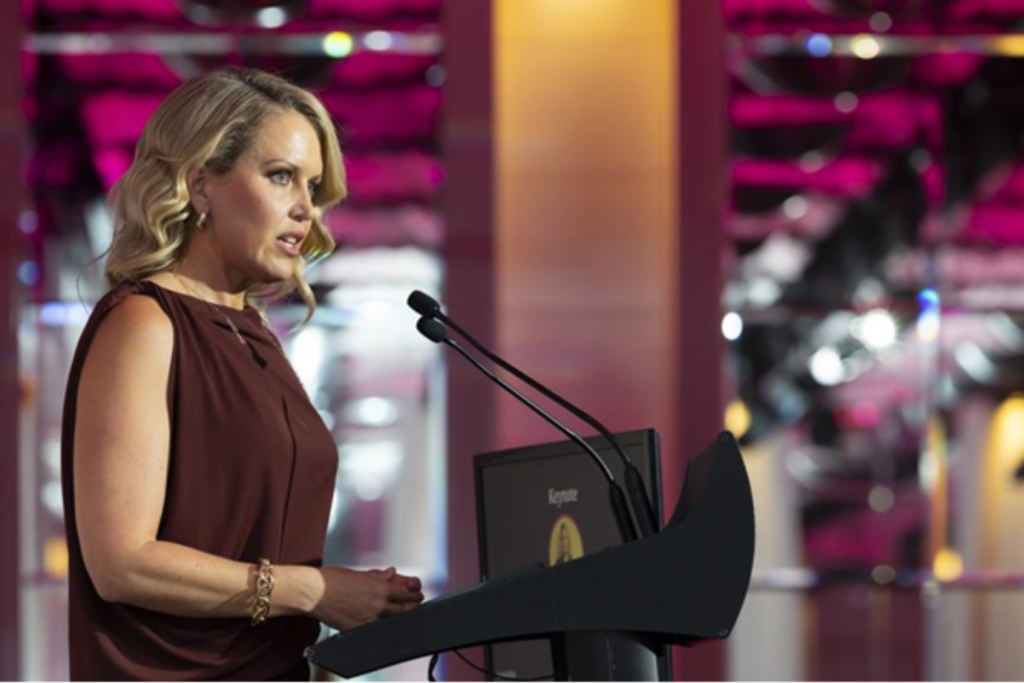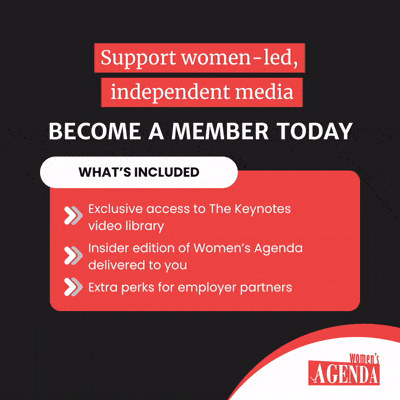Imposter syndrome is described as a type of self-doubt in intellect, skills or accomplishments among high-achievers.
It’s a phrase international human rights lawyer Jen Robinson doesn’t like.
The reason why, she revealed at the 2024 Women’s Agenda Leadership Awards, a night I don’t think any of us will forget.
If Robinson was to visit her 15-year-old self and tell her all the things she would be doing right now, she says that young girl would be gobsmacked.
“She wouldn’t believe me,” she said.
Giving a keynote at an event like this, representing clients like Julian Assange or Amber Heard, assisting Vanuatu in driving climate change action through the International Court of Justice– are not things that a girl from NSW public school, Bomaderry “Bomo” High could have ever imagined.

Robinson’s journey to this day, as we know, has been one filled with grit, years of hard work and tireless aspiration to dream (and achieve) remarkable change.
But along the way, her talent and efforts have been minimised in both subtle and more overt ways.
Like when she got to Oxford University after earning a Rhodes Scholarship, and a remark was made during an introduction to the mostly white, male cohort to “look around fellas, you could be sitting next to your wife”.
“Here I am being told I’m marriage fodder,” quipped Robinson.
Then there was the time an Australian newspaper wanted to interview her because she was headed to Oxford like then PM Tony Abbott, but their “vision” for the photo was her posing in an academic robe wearing nothing underneath and stiletto heels.
“Would you ask Tony Abbott that?” she said.
Outside of experiences like this, there were the myriad dismissive comments: “you’re so young”, “are you the secretary?”, “who did you sleep with to get that?”.
The silence in the room as Robinson recounted these experiences to the three hundred (mostly female) attendees was evidence enough of a strong, collective understanding. Because Robinson’s experiences are ones shared by ambitious women everywhere, everyday.
Robinson said by the time she left Australia, she had experienced sexual harassment at two of the three law firms she worked at.
And herein lies her issue with “imposter syndrome”.
Any human being who is told over and over again that they don’t matter or belong, is bound to doubt themselves. It’s a “natural reaction to the structures around us, not a pathology”, she explained.
“We absolutely come up against structural barriers when we’re either told explicitly or implicitly that we don’t belong in a room,’ she said.
“This is not that there’s something wrong with me or that I don’t feel like I belong.
“I’m in places where we traditionally have not belonged but we’re still not treated with the respect that we deserve and we continually have to take up space and be unapologetic about it.”
The reality is that most women have come up against unimaginable barriers, many have been hurt, failed by the structures around them and despite this, they get to work each day building a future that will be better for those behind them.
Sitting next to me last night watching Robinson and the other incredible women speak was a starry-eyed high school student with dreams of her own to become an international lawyer.
From the powerful conversations, speeches and connections in the room, I hope she left knowing that no matter how high the mountains are ahead, there are a hell of a lot of women whose shoulders she can stand on.


